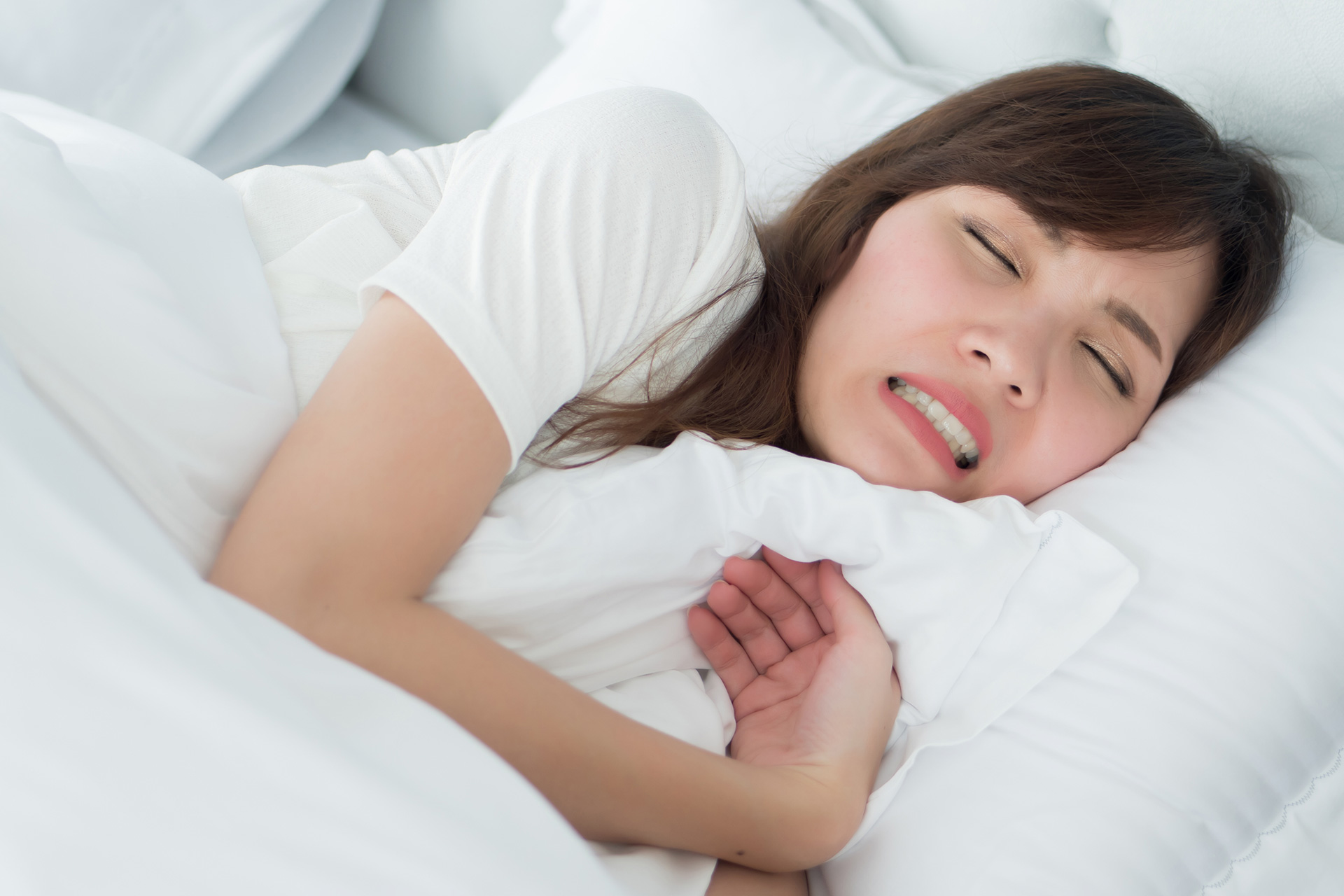If you wake up in the morning with teeth that appear to have shifted into different positions, you may be suffering from bruxism, a condition where you clench and grind your teeth at night.
Unfortunately, this could lead to a host of dental problems, so it is important that you learn more about dental bruxism and how to treat it.
Signs of Grinding the Teeth
Since grinding often occurs while asleep, you may not be aware that you are even doing it. However, teeth that shift out of position, dull chewing surfaces, jaw pain, and a constant headache in the morning are all symptoms. Your spouse may also tell you that he or she can hear you grinding while you rest at night.
The Trouble with Grinding
There are many troubles associated with grinding the teeth. Unnatural pressure can cause the teeth to move out of place, which may alter the alignment of your smile. If your teeth become crooked, they can be harder to clean, and tooth decay may result.
Chronic grinding wears down the teeth, and when this happens, crowns, bridges, root canals, and other restorations may be necessary. Additionally, the jaw can be affected, and you may experience jaw pain when chewing.
How to Stop Grinding
If you grind your teeth, there are steps you can take to kick the habit. One of the most common is the use of a mouth guard while you are sleeping. This will protect your teeth from damage due to clenching and prevent your teeth from shifting at night. Stress management activities can also help with your grinding.
Do you suspect that you grind your teeth at night? Do you wake up in the morning and notice that your teeth look or feel different? If these scenarios sound like you, please give our office a call and set up an evaluation.



